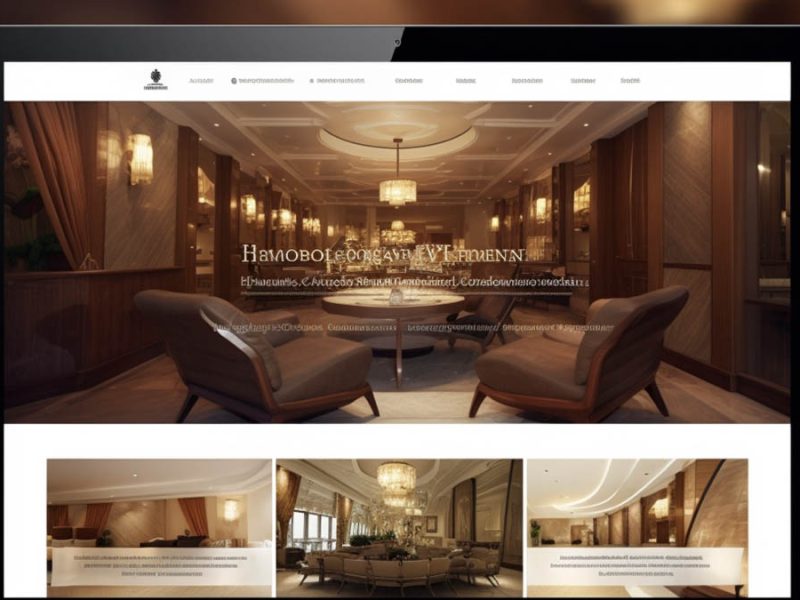
Top Strategies to Boost Hotel Occupancy Rates
Hotel Occupancy Rates techniques we help Improve hotel occupancy room rates and optimising occupancy are critical factors in increasing revenue and establishing a more sustainable and long-lasting business structure.
However, the path to reaching this objective is frequently fraught with misunderstandings. Hoteliers often fall victim to the pitfall of slashing room rates to attract guests. Although initially apparently effective, this strategy usually does not produce the enduring advantages one would anticipate. Although a reduction in room rates may provide temporary occupancy, it does not inherently compensate for the decline in revenue per room.
It is imperative to acknowledge that reduced prices do not inherently stimulate demand. They may even establish a precedent that is difficult to dislodge. Potential guests could perceive the reduced rates as a sign of inferior quality, tarnishing the hotel’s standing for an extended period.
Furthermore, the sustainability of a recurring discounting strategy may undermine the hotel’s perceived value. Reverting higher prices poses a challenge for businesses that have become habituated to low rates, as it may trap them in a cycle of diminishing returns.
What else is there? Improving the overall experience for guests while maintaining competitive room rates. Consider curated bundles, one-of-a-kind experiences, and supplementary services. This strategy aims to increase reservations and elevate visitor contentment, which may result in positive evaluations and subsequent patronage.
Visibility constitutes an additional fundamental element of achievement. The greater the visibility and prominence of your hotel on major booking platforms, the more likely prospective guests will encounter it. Such visibility can be accomplished via astute online marketing strategies, partnerships with reputable online travel agencies, and state-of-the-art hotel management software.
Subsequently, we shall offer extensive elements, situations, and critical approaches for substantially augmenting your hotel reservations.
The contents table:
15 Effective Strategies to Increase Hotel Bookings: The Importance of Doing So
Leveraging Voice Reservations for Booking Enhancement
Leveraging Conference Room Reservations to Secure Additional Bookings
Leveraging Technology to Increase Hotel Reservations and Revenue
Fifteen Effortless Methods to Increase Hotel Reservations:
In the ever-evolving hospitality domain, differentiating one’s establishment and captivating patrons constitutes an intricacy. In light of the emergence of online travel agencies and the changing preferences of travellers, hotels must consistently improve their strategies to sustain a competitive advantage.
The following are fifteen strategies customised to cater to a wide range of customers, including business travellers, vacationers, and even natives seeking an unforgettable staycation experience.
By employing these strategies, hotels can enhance their visibility, draw in a more extensive clientele, and, ultimately, boost their occupancy rates.
Curate and Promote Special Packages: To allure guests to experience more of your hotel’s offers, bundle room rates with value-adding features, such as fitness classes or wellness treatments.
Emphasise Local Attractions: Recruit prospective guests for midweek stays within a two-hour radius by establishing collaborations with nearby attractions and utilising regional media platforms to promote the offer.
Develop a Mailing List: Maintain communication with your most valuable clientele via monthly emails that showcase exclusive midweek promotions and offers, thereby incentivizing visits during periods of reduced activity.
Propose One-Day Events: Coordinate cultural gatherings such as poetry readings or art exhibitions that transpire throughout the week to draw in affluent individuals, specifically those aged 50 to 60.
Promote Business Collaboration: Make your venue available for corporate events and meetings, focusing on companies with multiple subsidiaries and may need to make arrangements for lodging for visiting delegates.
Implement the ‘Two for One’ Meal Rates: Encouraging patrons to dine by providing dining incentives, such as a two-meal offer for the cost of one, can boost revenue and midweek occupancy.
Advocate for Midweek Nuptials: Embrace the expanding phenomenon of weddings on weekdays, preventing potential conflicts with other events that may overshadow the intimate ambience.
Promote Prolonged Stays: Implement a strategy of incentivising guests who prolong their weekend sojourns; disseminate this information via pre-stay emails and during check-in.
Form Alliances with Local Restaurants: Provide discounted rates to groups partaking in Christmas parties or other significant gatherings at sizable local eateries throughout the week.
Foster Partnerships with Realtors: Offer exclusive discounts and promotional prospects to real estate agents who can facilitate the referral of clients needing overnight accommodations.
Leverage Social Media Competitions: Foster audience engagement and promote your hotel’s amenities by offering midweek getaways as rewards on platforms such as Facebook.
Leverage Seasonal Appeal: Employ the inherent allure of your destination’s seasons to attract patrons, whether beachfront establishments or ski resorts.
Foster collaborations with regional suppliers to provide reduced-priced activity packages during the height of the holiday season, thereby augmenting the vacation experiences of patrons.
Organise Themed Events: Enhance the jubilant ambience by hosting themed parties and events that align with the holiday expectations of your attendees.
Appreciate Local Patrons: Provide exclusive offers or packages to residents searching for a “staycation,” thereby fostering a sense of gratitude and stimulating recurring patronage.
Making Use of Voice Reservations:
Although digital registration alternatives have proliferated, voice reservations remain an indispensable element of hotel reservations. Failure to consider the potential of phone communications may adversely affect your hotel’s revenue and marketing strategies. The following is why:
Examine the origin of voice reservations to assess the efficacy of your marketing endeavours, including social media and email campaigns.
The Significance of Voice Reservations: Enhance conversion rates by gaining insights into consumer preferences and service quality through phone conversations.
The Resurgence of Voice Interaction: Because an excess of information can result in perplexity, many travellers continue to favour the precision and clarity of a telephone conversation.
Voice reservations can decrease distribution expenses linked to over-the-top (OTA) providers while presenting prospects for customized upselling.
Leveraging the Benefits of Conference Room Reservations:
Consider the following to optimise the utilisation of your meeting facilities and increase the number of business attendees:
Recruit Proficient Experts: Employ event specialists and provide them with the requisite technological resources to guarantee the seamless execution and triumphant outcomes of corporate events.
Establish Industry Alliances: Partner with event organisers and travel agents to secure referrals for your hotel’s corporate clientele.
Demonstrate Facilities Online: To entice prospective clients, uphold a comprehensive and current website featuring photographs, amenities, and corporate meeting packages.
Streamline the Reservation Process: Implement an online booking system or contact form for meeting facilities, and guarantee timely responses to inquiries.
Venture into Offerings: For lesser events, contemplate renting meeting spaces hourly while augmenting revenue by incorporating food and beverage services.
Leveraging Technology to Increase Reservations and Revenue:
Leverage technological advancements to augment your hotel’s online visibility, particularly in periods of high tourist activity. Using a resilient channel management system, the booking procedure can be optimised, overbooking can be averted, and system updates can be delivered in real-time.
SiteMinder and similar platforms provide a collection of tools tailored to the needs of medium- to large-scale hotels. These tools aid in administering online presence, process automation, and revenue optimisation.
The principal benefits consist of:
Efficient and Precise: The implementation of automatic reservation updates mitigates the occurrence of manual errors and guarantees that no booking is overlooked.
Enhanced Revenue and Visibility: Listing on multiple OTAs increases exposure and attracts more visitors.
Preventing Overbooking: Real-time inventory updates are implemented to ensure a seamless passenger experience.




